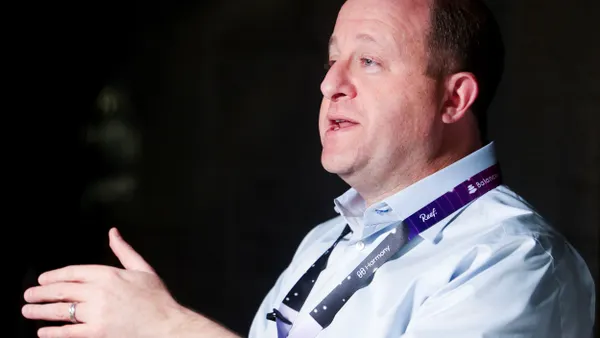Let’s face it: It’s been a rough few months when it comes to headlines about CFOs behaving badly.
In August, Allen Weisselberg, the longtime Trump Organization senior finance executive, pleaded guilty to 15 charges related to evading taxes in connection with a scheme whereby former President Trump’s company provided Weisselberg with a rent-free apartment, expensive cars and private school tuition for his grandchildren.
Earlier this month, Dentsply Sirona wrapped up its examination into the Charlotte, N.C.-based dental supply maker’s accounting for incentives to sell products. It found that its former CEO and CFO violated provisions of the company’s code of ethics and business conduct while also finding no intentional wrongdoing or fraud. After the internal investigation at Dentsply was initially disclosed, its former CFO, Jorge Gomez, abruptly stepped down in May from his brand new finance chief post at vaccine-maker Moderna.
Meanwhile, Springdale, Ark.-based Tyson Foods board is reviewing the Nov. 6 arrest of CFO John R. Tyson on public intoxication and criminal trespassing charges.
The recent scandals highlight the key role that CFOs play in keeping their company’s finances on the straight and narrow. Typically viewed as a second-in-command role, a good CFO’s performance can fly under the radar, garnering relatively sparse public praise, with most accolades for companies performing well often going to the CEO.
The high-profile troubles that have been in the news contrast with an anecdote that a finance chief recounted on the sidelines of a recent business event. It is likely a more common but less exciting tale that underscores the personal challenges finance chiefs face when working to keep their companies finances in order.
The CFO recalled a time when he got some pretty strong pushback for not recognizing revenue which wasn’t in the door yet. He did so because it was the right thing to do, he said, knowing the decision would negatively affect certain employees’ bonus prospects.
It prompted a visit from the CEO to the CFO’s office. The CEO closed the door before giving him a loud earful about how the accounting would affect compensation. It was the wrong move, the CFO was told, because many executives would not get the bonuses they were counting on.
Stories of such finance chiefs, who go against the grain and raise important issues, do sometimes get told.
Most recently, Walt Disney Co.’s CFO Christine McCarthy was among those who expressed a lack of confidence in then CEO Bob Chapek to Disney directors, according to a Nov. 25 Wall Street Journal report. In a surprise change of leadership on Nov. 20, the board replaced Chapek with Robert Iger, Walt Disney’s former chairman and CFO.
Another example of an outspoken CFO involved the scandal-plagued blood-testing company Theranos which didn’t heed its finance chief’s warning.
Theranos had one CFO in its 15 years as a business, Henry Mosley. A finance veteran, Mosley was fired from the company in 2006 after he expressed concern that the company, as part of a pattern, had faked test results it had shown to Novartis, the Swiss pharmaceutical giant that was thinking about becoming an investor. The company’s founder, Elizabeth Holmes, was sentenced this month to more than 11 years in prison after being convicted of running a fraud scheme, according to media reports.
With the holiday season kicking off, a motto of the late “Roots” author Alex Haley seems timely: “Find the good and praise it.”
So let’s remember the good CFOs. Here’s to the finance chiefs fighting to do the right thing behind closed doors. We may never know their names.















